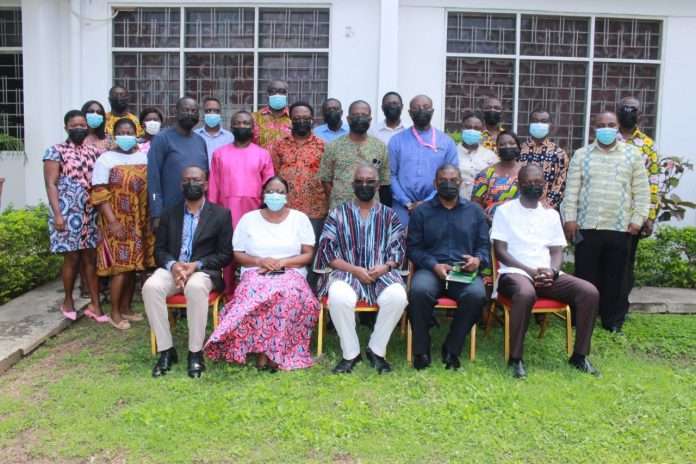Dr. Richard Ampadu-Ameyaw, a Senior Research Scientist at CSIR-STEPRI, has urged the government to increase its investment in the adoption of technology and farm services support as that is woefully inadequate in the agriculture sector.
The CSIR-Science and Technology Policy Research Institute (STEPRI) said that will help boost agriculture and enable the country to achieve some SDGs quickly.
Dr. Ampadu-Ameyaw made these assertions at a workshop on the theme: “Effective Partnerships for effective uptake of Sustainable Intensification (SI) technologies, Innovations, and practices: Role of Farmers, Research and other private and public sectors.”
The Scientist said the provision and access to farm services are either absent or limited in the country. He noted that this had been attributed to the poor financial status of the smallholder farmers, who constitute most of the country’s farm population.
“The technology adoption is critical in achieving sustained productivity, improved food and nutrition security, and raising the incomes of farmers. The government policies to support investment and supply of such services are either weak or absent, meanwhile, the private sector is disinterested and reluctant to invest in such basic machinery for lack of profit and or poor market demands. The focus on extension education in terms of what to plant, how to plant, spray and fertilize dominate at the expense of such farm services.”
Dr. Ampadu-Ameyaw
Farmers need capacity building in mechanization or machinery services

Dr. Ampadu-Ameyaw said the government imitated programmes such as PFJ, youth in Agriculture, planting for Exports and Rural Development, and One District One Factory are good and could propel growth in the agriculture sector; however, access to technology adoption and use of these support services can enhance agricultural production in the country.
He recommended that there should be a capacity building in mechanization or machinery services with market accessibility training services and SI training services.
“These technologies have the potential to provide opportunities for higher productivity, improve the quality of food safety, and enhance farmers’ income and livelihoods.”
Dr. Ampadu-Ameyaw
Dr. Adelaide Agyeman, the Deputy Director, CSIR-STEPRI, said the workshop is to share knowledge and findings of research to inform and strengthen Ghana’s SI-related policy and investment processes. She noted that the workshop is important because it provides a framework to guide the integration of SI measures into agricultural development policy and planning.
“The main outcome of the STEPRI activity is that effective partnerships are built with farmers, local communities, and research and development partners in the private and public sectors to ensure delivery and uptake at a scale of SI technologies, innovations, and practices.”
Dr. Adelaide Agyeman
Dr. Fred Kizito, Chief Scientist at the International Institute of Tropical Agriculture, said farmers had learned a couple of sustainable things, and even without the presence of the project, they would be able to move forward.
READ ALSO: Legal Practitioner Questions Payments Made To National Cathedral Architectural Designer























